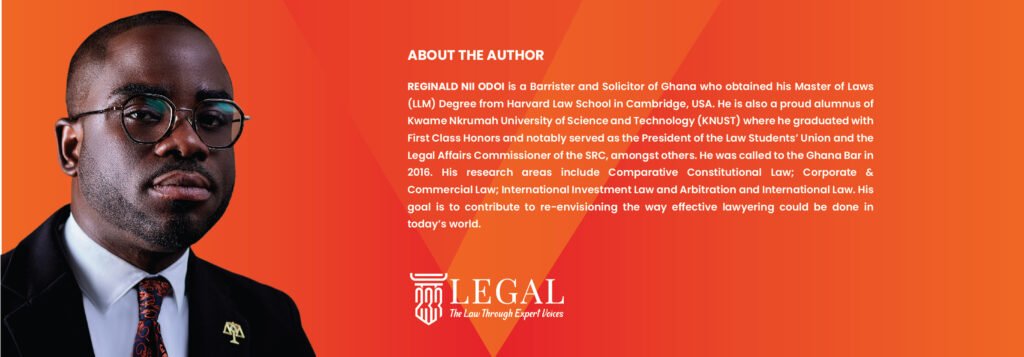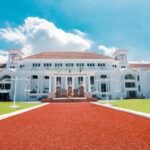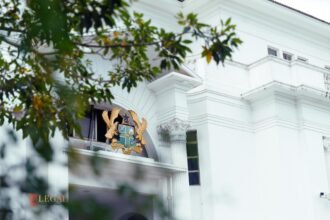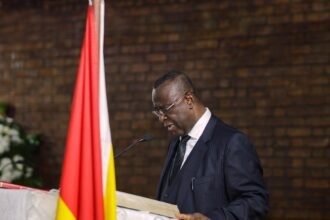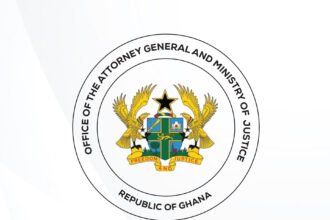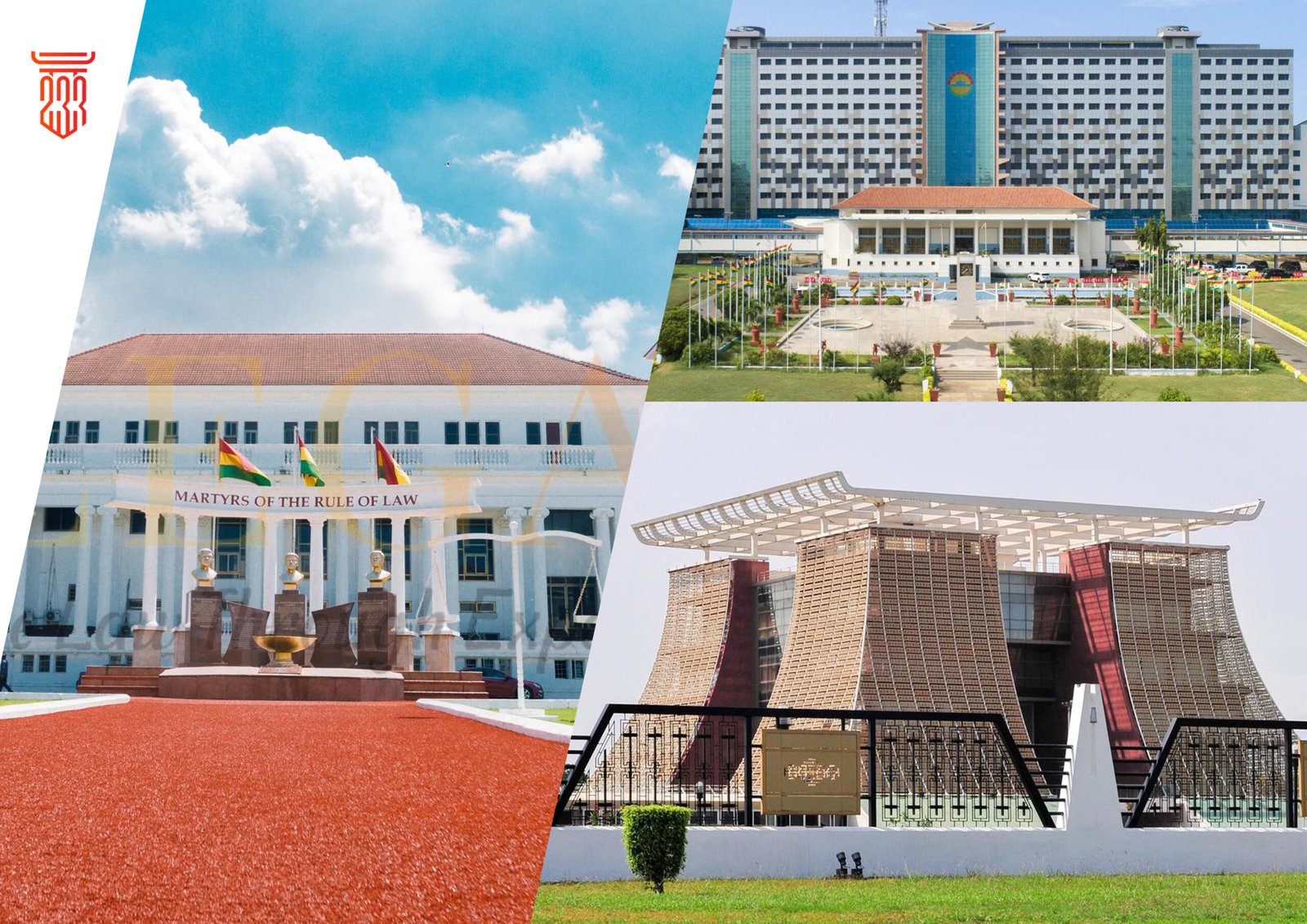

Introduction
It enjoins upon its branches separateness but interdependence, autonomy but reciprocity.
The doctrine of separation of powers, which operates within our 4th Republican constitutional set up, not only promotes efficiency in the workings of the organs of government but also precludes the exercise of arbitrary power. As a philosophical and also a political concept, it seeks to put the organs of government into three (3) distinct branches namely the Executive (Chapter 8), the Legislature (Chapter 10) and the Judiciary (Chapter 11) as a way of saving the people of Ghana from autocracy by means of the inevitable friction incident to the distribution of governmental powers amongst these 3 organs. This reflects the nuanced and practical view of the concept as seen in the Youngstown Sheet & Tube Co. Ltd v Sawyer 343 US 579 wherein it was stated that by remaining separate, the virtues of liberty and constitutionalism would be achieved in government whilst, on the other hand, by being interdependent on each other the branches will mutually reinforce one another in their respective functions. Indeed, the concept of separation of powers is crucial in understanding the dynamics of governance in Ghana, particularly within the framework of the 1992 Constitution. Albeit, the 1992 Constitution, by design, commits certain functions and questions of constitutional law to the elected branches of government for their resolution. This essay seeks to analyse separation of powers in light of political questions and argues that there needs to be a nuanced understanding of the complex relationship between the various organs of government created by the constitution.
The foundational underpinnings of the political question doctrine
The political question doctrine is a well-known principle of constitutional law which was founded on the theory of separation of powers and also developed from American jurisprudence. The doctrine is to the effect that certain questions are better left to the other elected branches of government rather than the judiciary which remains unelected. As espoused in the US case of Baker v Carr 369 U.S. 186, a political question could be read narrowly or more broadly. In a narrow context, the political question doctrine is invoked when an issue presented to the court is one that deals with a subject matter that is exclusively and textually committed to a particular branch of government. In that light, it is believed that only that branch reserves the right to superintend over the exercise of that power. This means that where the framers of the constitution made clear their intention that the judiciary should not resolve a particular question under the guise of constitutional interpretation, such determination should be respected. In a broader context, the political question doctrine may be invoked when there is the lack of clear, judicially manageable guidelines for resolving constitutional matters on the merits and also where there is the need for policy decisions to be taken in respect of such constitutionally assigned questions or functions by the elected branch involved – a kind of discretion which is non-judicial. The doctrine is further grounded on the strong view that there ought to be respect for coordinate branches of government and by so doing prevent potential embarrassment arising from conflicting pronouncements by different branches of government and also the need for unquestioning adherence to a political decision already made.
The applicability of the political question doctrine in Ghana in light of the concept of separation of powers
The Supreme Court of Ghana has not consistently applied this doctrine and as a result there are varying positions on its application. In the New Patriotic Party (NPP) v Attorney-General (31st December case), the court responded to a submission that the doctrine of political question prohibited it from entertaining the suit. The Supreme Court speaking through Adade JSC stated that the constitution itself is largely a political document and all actions of the various branches and agencies must ultimately comply with the Constitution. In this regard, the Supreme Court concluded that its jurisdiction cannot therefore be ousted when there is a challenge alleging a breach of the constitution where the objection is founded on the political question doctrine.
This however can be contrasted with the same Supreme Court’s position in the Ghana Bar Association v Attorney-General (Abban Case) [2003-2004] SCGLR 250 in which the Court decided that the doctrine applied in Ghana and that where matters are textually allocated to a particular branch of government, the Court cannot exercise a power of review over these branches in respect of the matters being the subject of constitutional challenge. The Court decided, in other words, that where the constitution by its structure has textually consigned certain matters to a particular branch, that branch has the enforcement autonomy of that power and accordingly, the exercise of this power cannot be the subject of the review of the Court.
In JH Mensah v Attorney General [1996-1997] SC GLR 320, the Court refined the doctrine and its operation in Ghana. The Court reviewed the Tuffuor Case by narrowing the scope of the exclusivity principle under which the textual commitment of a particular power to a branch precludes the exercise of judicial review in respect of the exercise of that power. The Supreme Court decided that the Court’s power of review will be exercised in respect of all acts and omissions with a constitutional implication even if that power has been committed to a particular branch unless it can be shown that the issue is not only internal to the organ in question but also that it does not implicate any clear constitutional obligation or provision. In Martin Alamisi Amidu v President Kuffour and the Attorney-General (2001-2002) SC GLR 138, the Supreme Court through the words of Acquah JSC discussed the doctrine saying that: “it follows therefore that no individual nor creature of the Constitution is exempted from the enforcement provision of article 2 thereof. No one is above the law. And no action of any individual or institution under the Constitution is immune from judicial scrutiny if the constitutionality of such an action is challenged. Thus, the doctrine of the political question found mainly in the US Constitutional jurisprudence by which courts refuse to assume jurisdiction in certain disputes because the subject-matter of those disputes are alleged to be “textually committed” to that institution, is inapplicable in our constitutional law…”
More recently, in the case of Justice Abdulai v The Attorney-General, Supreme Court, Writ No. J1/07/2022, the Supreme Court on the political question doctrine and in the words of Kulendi JSC stressed the point that: “this Court would be failing in its Constitutional responsibility and mandate if we were to avoid and/or fail to provide clarity and direction and take cover under a so-called political question doctrine. Which is to say that it is a function of the principle of separation of powers, that certain questions presented for resolution by the Courts, that are expressly or impliedly constitutionally committed to elected/political branches of government for resolution, be left to those branches because such questions may be said to be non-justiciable and consequently the judiciary ought to abstain from deciding them, as doing so would cause judges to intrude upon the functions of the elected branches of government…In exercising its interpretive and enforcement mandate, the Court has power to adjudicate all and any allegations that any acts, omissions and enactments are inconsistent with and in contravention of the Constitution without the exceptions tendered to be suggested on grounds of the doctrine of political question.”
The need to uphold the political question doctrine in deserving cases
It is submitted by the writer that, based on Ghanaian jurisprudence, certain provisions of the 1992 Constitution can and should be considered as political questions which are textually committed to the elected branches of government and accordingly better left to them for their resolution. Examples include Article 72 on the exercise of the prerogative of mercy by the President of the Republic of Ghana in consultation with the Council of State; Article 74(1) which grants the President the power to appoint ambassadors and persons to represent Ghana abroad; Declaration of Public Holidays; Impeachment proceedings; Legislative decisions; certain policy choices and Executive decisions falling within the domain of elected branches; some of the Directive Principles of State Policy (standing alone), amongst others. Though the application of the doctrine can be complex and its boundaries continue to be shaped, it is important that the political question doctrine within the 1992 Constitution, where necessary, should be upheld in keeping with a proper understanding of the complex relationships between the branches of government.
It is worthy of note that the Supreme Court in the very recent case of Vincent Ekow Assafuah v Attorney-General, Supreme Court, Writ No. J1/18/2025 dated 6th May, 2025 has taken steps towards upholding the political question doctrine in very deserving cases and in doing so has crafted a more nuanced approach to dealing with the delicate yet complex relationship between the branches of government. In the said case, Kulendi JSC highlighted the importance of balancing the Judiciary’s role as guardian of the constitution “against the need to respect the autonomy and functions of the elected branches.” Though emphasizing that “labelling a matter as a political question is not a license for the Executive or Legislature to violate the clear terms of the Constitution,” Kulendi JSC went ahead to state that “sufficient restraint and caution must always be applied so as not to upset the delicate balance that exists between the three coordinate and co-equal arms of government.” This means that the relationship between the three arms of government as being separate but interdependent must nuance judicial posturing to ensure that the judiciary does not render either of the two arms inoperative, inefficacious or ineffective and thereby needlessly frustrate or obstruct the due exercise of their powers, functions and respective constitutional prerogatives.
Conclusion
In conclusion, the doctrine of separation of powers is a cornerstone of Ghana 1992 constitutional framework, and the political question doctrine plays a vital role in maintaining the delicate balance between the judiciary, legislature and executive. Ghana’s constitution has its own unique attributes including the division of power amongst the three arms of government with limits not to be infringed by any other arm. Upholding the political question doctrine, where necessary and appropriate, is essential to prevent judicial overreach and ensure that each branch of government respects the other’s sphere of authority. This doctrine, if properly applied, would not undermine the judiciary’s role but rather define its boundaries. By adhering to this doctrine, Ghana can foster a culture of constitutionalism, respect for the rule of law and interdependence among the branches of government. Ultimately, Ghana’s constitutional democracy relies on the separateness but interdependence of its institutions. By embracing the political question doctrine, the country can promote good governance, prevent abuse of power and ensure that each branch of government functions within its constitutional limits.
God bless!
